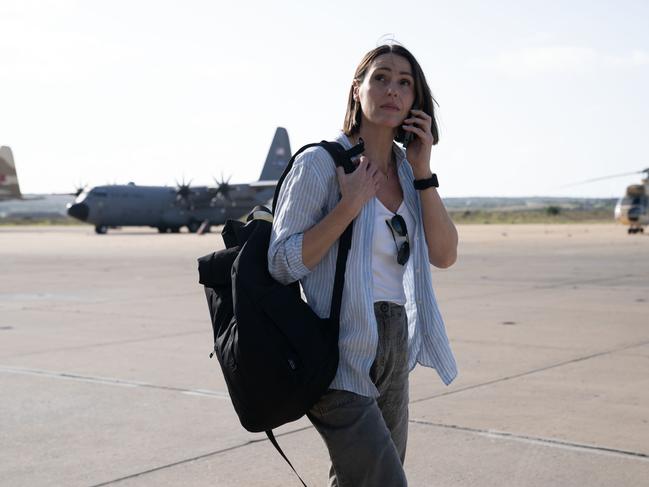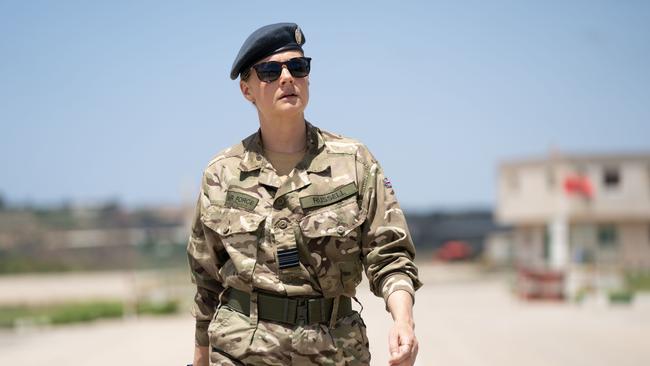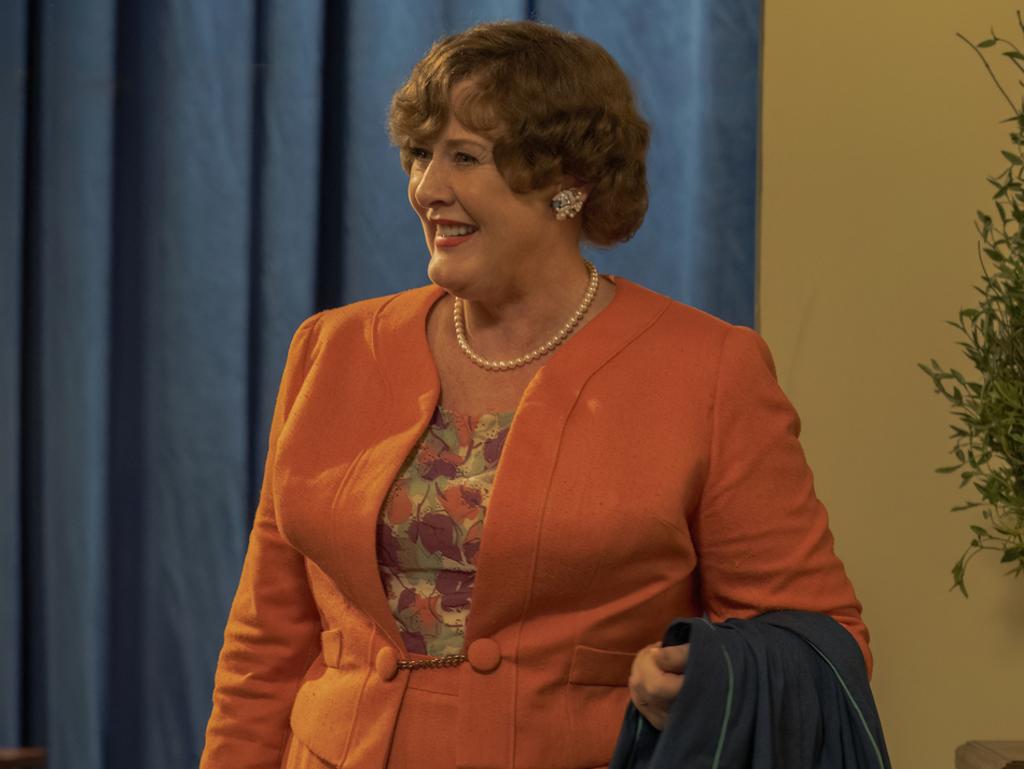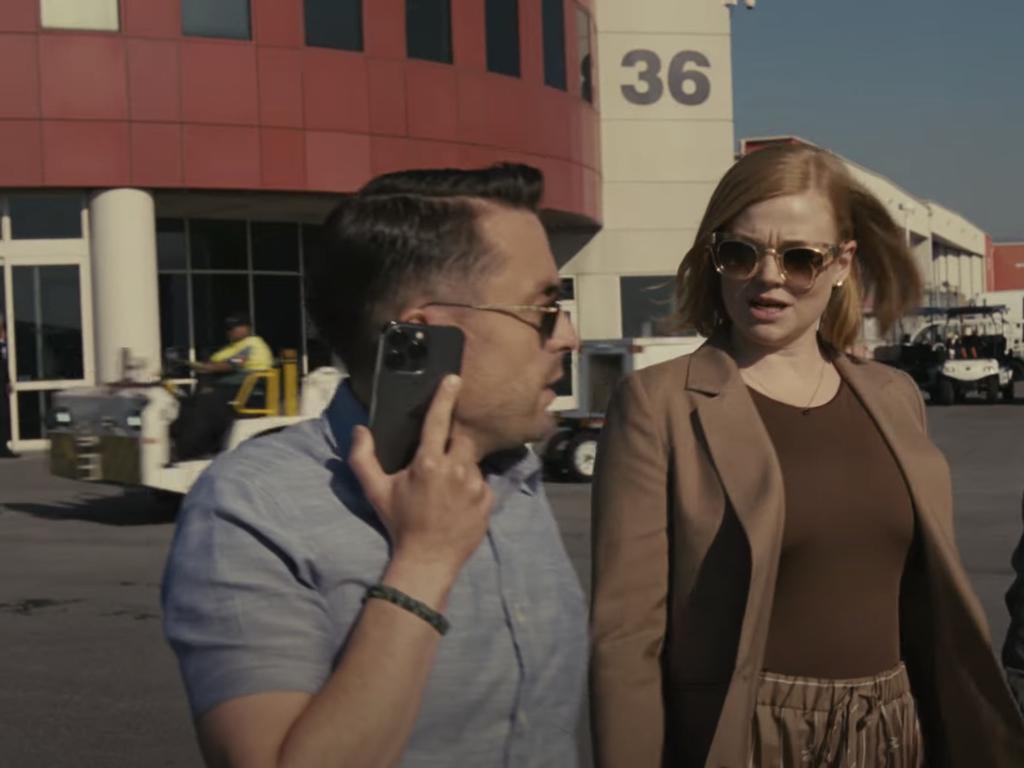BBC thriller Vigil ditches submarine for Middle Eastern adventure
Suranne Jones returns as ‘the best detective in Scotland’ but this time is sent to an oil rich dictatorship to investigate some controlling weapons merchants after military testing goes haywire.

The second season of the successful BBC submarine thriller Vigil has arrived after a longish delay, though this time there are no claustrophobic underwater shenanigans. And again it’s a twisty police procedural with the stern, unforgiving DCI Amy Silva, played by the increasingly familiar Suranne Jones, at its centre.
The title has been retained even though it was the name of the submarine that features in the first season. Silva maintains a kind of vigil over the cases with which she’s presented, constantly watching for danger given the extreme circumstances she encounters.
Once more there’s a bit of a love story placed at the centre of a conspiracy thriller but principally the new season conceptually repeats the notion behind the first – in which the intrepid Silva was dropped into the ballistic missile-carrying submarine, poised to launch a thermonuclear warhead from up to 4,000 miles away from a target – to solve a murder.
Silva, “the best detective in Scotland”, was assigned to investigate a mysterious death aboard the massive submarine, and, after boarding the huge war machine from the air, became trapped inside it along with the crew and her prime suspect.
On shore the case was handled by her still rather secret girlfriend, Rose Leslie’s DS Kirsten Longacre, who is highly concerned for the fate of her seemingly lost love. To make matters worse, Navy protocols demand secrecy. There was no open communication between the submarine and the land investigation so there was no direct contact between Silva and Longacre. They had to rely on heavily coded, and monitored, telegrams.
The complex, entertaining plot centred on the clash between the Navy hierarchy and the investigating police led by the stranded Silva. It also involved the security services and a peace site, inspired by the Faslane Peace Camp, which has been a potent symbol of opposition to nuclear weapons based on the Clyde for more than 30 years. There was a lot going on. A rear admiral was asked by the production creators about the veracity of the season and said the things that are in the show either have happened or could happen, but perhaps not in one week.
The new season is again from the seemingly indefatigable World Productions, which has generated more than 450 hours of critically acclaimed, award-winning drama for the BBC, ITV, Channel 4, HBO, Netflix, Amazon & Sky.
The first Vigil was a huge hit for the company, which is often described as a “bona fide hit factory”, and in 2021 was the most watched drama launch since 2018’s Bodyguard, written by Line of Duty’s Jed Mercurio. The series was created and written by the twice BAFTA-nominated screenwriter Tom Edge (Judy, The Crown), with the new season directed by Andy De Emmony (The Nest, The Last Kingdom) and Joss Agnew (Deep State, Outlander).
And with his new season, Edge again takes the idea of the classical detective story, beginning with an unsolved crime and moves towards the elucidation of its mystery, all taking place within a tightly defined enclosed place. And like the classical detective story, the crimes initially seem insolvable; the clues, suspects, witnesses, and possible solutions further obfuscate the mystery just as the detectives seem ready to step in. And with Edge’s diabolical plotting it’s easy at times to sink into the same confusion that afflicts his cops.
It takes some time for any meaningful sense of order to emerge, which is both infuriating and part of the pleasure of this kind of thriller.
DCI Amy Silva returns of course as lead investigator, stoic in the face of disorder, and her romantic partner, DI Longacre, also reappears in the show, now pregnant and refusing to take maternity leave. This time they must investigate several fatalities caused by military testing that goes haywire, which could have been accidental – a fault in the weapons system perhaps – or something more sinister. It all begins with a genuinely frightening sequence, superbly orchestrated by De Emmony, that takes place on a military training ground in the Scottish countryside. A company called Alban-X has designed a new form of military drone called R-PAS, more correctly known as Remotely Piloted Air Systems.
Sleek and futuristic looking, these compact metal machines, carrying a lethal payload of bullets, rockets and grenades, were to be used in combat to minimise so-called collateral damage to civilians but have not been fully tested. More finance is needed to fund their development and a deal has been hatched with the Sheikh of Wudyan, a fictional place somewhere in the Middle East, to enable mass production. (The Wudyan scenes were shot in Morocco.)

It’s potentially a one-billion-dollar partnership of great benefit to the UK government, which regularly sells arms to the Sheikh.
Air Vice-Marshall Marcus Grainger (Dougray Scott) takes control of a demonstration drill in which four of the remotely controlled drones are to violently destroy a targeted hut for the benefit of dignitaries from the oil-rich dictatorship. Part of the deal negotiated by the wily Grainger involves setting up a joint R-PAS squadron in sandy Wudyan, where several operatives are remotely piloting aircraft for the test.
Then all hell breaks loose. Someone hacks one of the aircraft and opens fire on the base, killing several soldiers and strafing the visiting Arab dignitaries.
The case is Silva’s to solve, with the help of her pregnant police offsider, but again they are separated as Silva is quickly on the move to forbidding Wudyan to investigate one of the military personnel stationed there as a leading suspect.
This time the story also presents as a twist on the traditional locked room mystery – the location is no sub but the heavily fortified air base called Al Shawka in the Middle East oil rich dictatorship of Wudyan.
There Silva must work and sleep alongside the antagonist she’s pursuing, a detective, as Edge said of her first case, “forced to work without all the things that usually support her: colleagues, forensic tools, access to information and records”. And obviously she creates all sorts of tensions that disrupt the usual highly militarised routines of the base and its commanders.
The underlying theme is the way warfare is increasingly dictated by machines, even if in this case they are still operated by military personnel, and the way critical questions around strategy, technology and morality arise at every turn.
And the second season takes us deep into the oblique machinations of the military-industrial complex, and the cynical realities of the weapons market where massive million-dollar contracts are on the line, the wheeler-dealing seldom up for public scrutiny. Ending lives is a huge business and a largely amoral one. And what role should arms sales play in the foreign policy of any country?
So, DCI Silva finds herself up against some controlling weapons merchants and British military brass prepared to manipulate public policy to perpetuate their own power. And she quickly discovers that the clandestine network of transcontinental interpersonal military and political relationships is twisted and potentially deadly.
Who is she to trust? How on earth does she establish her crime scene? It’s increasingly clear to her that any information she is reluctantly given can’t be relied on in a fraught investigation in which she is surrounded by guns — some pointed at her.
It’s explained to her that 600 local Scottish jobs depend on these flying killing machines being sold to Wudyan, which is using them to manage an uprising in a neighbouring country – at least that’s the official explanation. And Silva’s investigation, in which she is playing largely a lone hand, is bound to be obstructed at every turn.
Jones’s DCI Silva is a great investigator, not especially likeable – even in scenes with her lover she’s distinctly cold – but she has a gift for methodically assessing bits of information and compiling a case despite male authority figures and their disdain and sometimes contempt.
You sense that her investigation is not simply about finding the guilty party but also a means to defining her own moral position. She has no superpower, just a pronounced lack of deference and a pair of dark rimmed spectacles. When she’s onto something she abruptly takes off her shades and when she’s certain she’s right, she just as abruptly puts them back on. It’s quite an act.
Vigil is streaming on Binge.






To join the conversation, please log in. Don't have an account? Register
Join the conversation, you are commenting as Logout